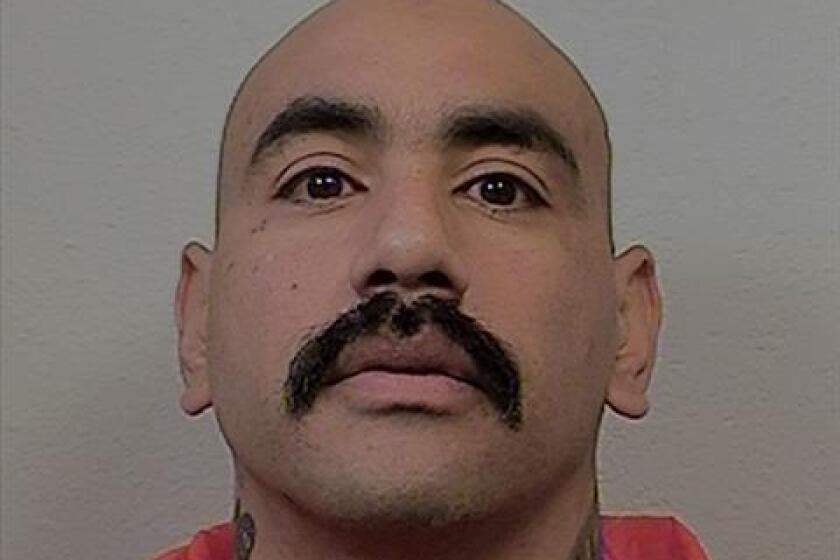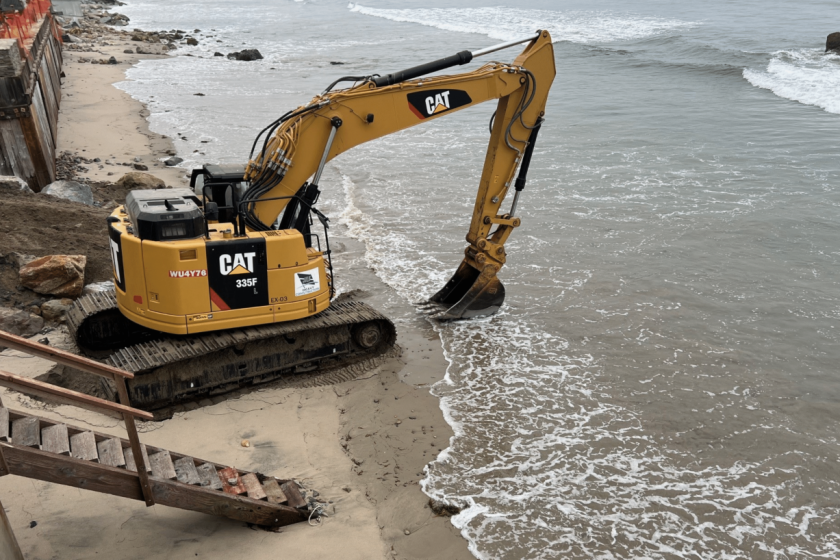Fate of Minority Outreach Efforts in Court’s Hands
Justices of the California Supreme Court expressed skepticism Wednesday about continuing government recruitment and outreach programs only for women and minorities as the court for the first time reviewed the scope of the state’s prohibition on affirmative action.
In 1996, voters passed Proposition 209, prohibiting state and local government agencies from giving preferences to women and minorities in contracting, hiring and college admissions.
After the proposition passed, government entities ranging from the University of California to many city governments turned to so-called outreach programs.
Scores of different types of programs in California are labeled outreach efforts. The UC system, for example, claims to spend $250 million a year on outreach. Its programs include special efforts to help minority students meet minimum UC eligibility standards as well as recruitment campaigns to persuade minority students to accept admissions offers.
The court’s decision, which is expected within 90 days, potentially could invalidate all such programs. The justices, however, also could rule more narrowly--striking down the specific type of program involved in the current case while withholding judgment on others.
The case being reviewed by the court involves a San Jose law that required contractors doing business with the city to seek bids from four subcontracting firms owned by women or minorities.
The contractors were not required to actually hire the minority- or women-owned companies, but if they did not do so, they were required to explain why.
Programs like that would violate Proposition 209 if the court decides they “provide preferential treatment based on race, sex and national origin,” Chief Justice Ronald M. George said during the argument on the case, Hi-Voltage Wire Works vs. City of San Jose, S080318.
Remarks by several justices during the argument strongly indicated that the court is inclined to put strict limits on what outreach is allowed.
The importance of Wednesday’s argument was symbolized by state Atty. Gen. Bill Lockyer, who made his debut before the court, arguing that Californians support “efforts to ensure equal protection for all.” He said he was the first attorney general to argue before the state high court since 1989.
Although the justices received Lockyer respectfully, several noted that voters had already decided questions of policy, and the court merely had to interpret the breadth of the measure.
“The people of California . . . have made a decision that this is what they want,” said Justice Joyce L. Kennard, “and whether that is a wise policy decision is not for this court to say.”
Kennard reminded Lockyer that Gov. Gray Davis conceded that outreach aimed at women and minorities was illegal under Proposition 209 when he vetoed a bill last year that would have declared state support for such programs.
Lockyer said the vetoed bill differed from the kind of outreach the court was reviewing.
San Jose’s program, Lockyer said, is analogous to an instructor in a large lecture hall raising his voice so those in the back can hear--an effort that doesn’t help those in the front but “that just gives everyone a chance to hear.”
Former San Jose City Atty. Joan Gallo made a similar argument to justices, saying that the program was designed merely to give groups that have been discriminated against “an opportunity to compete.”
“They have been blocked from the competition,” she said.
But Sharon Browne, a lawyer for the Pacific Legal Foundation, a Sacramento-based firm that represents conservative causes in court, countered that San Jose’s program was “designed to give minorities and women a competitive advantage.”
The case before the court was brought by Hi-Voltage Wire Works of Rancho Cordova, a firm that previously had lost a city contract for work on a sewer system. Though the firm was the lowest bidder, it did not comply with the city’s outreach requirements because it could do the work without subcontractors.
A Court of Appeal sided with the company last year and struck down San Jose’s program. The lower court contended that Proposition 209 was not limited to a ban on quotas, set-asides, or goals for contracting and hiring.
In the Supreme Court argument, George suggested that recruitment programs to encourage minority and female participation may still be allowed as long as the recruitment is not limited to specific underrepresented groups.
Gallo said after the argument that she had been encouraged by his remarks.
“If the city of San Jose’s program is not quite perfect,” she said, “we’ll go ahead and make it perfect. . . . The important issue at stake is, can you have targeted outreach?”
Browne, who argued against the San Jose law, said she too was encouraged because the court had a “very good understanding of the program before them.”
The hearing had been delayed an hour because Lockyer, who had driven from Sacramento, had been stuck in traffic on the Bay Bridge. He confessed later that he had been nervous in his first appearance before the court.
“It is a forum that is intimidating and one that produces nervousness from anyone who appears before it,” Lockyer said. “It is the Supreme Court so I am respectful of whom I am before.”
More to Read
Sign up for Essential California
The most important California stories and recommendations in your inbox every morning.
You may occasionally receive promotional content from the Los Angeles Times.











